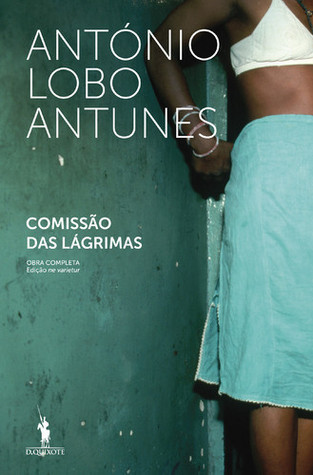
António Lobo Antunes’s twenty-fifth novel, Commission of Tears (2011, Comissão das Lágrimas) is set during the Angolan Civil War (1975-2002). Angola attained official independence on November 11, 1975 and, while the stage was set for transition, a combination of ethnic tensions and international pressures rendered Angola’s hard-won victory problematic. As with many post-colonial states, Angola was left with both economic and social difficulties which translated into a power struggle between the three predominant liberation movements. The People’s Movement for the Liberation of Angola (MPLA), formed in December of 1956 as an offshoot of the Angolan Communist Party, had as its support base the Ambundu people and was largely supported by other African countries, Cuba, and the Soviet Union. In this novel, Lobo Antunes delves into this traumatic period of Angola's history through the fragmented memories and dreams of a broken woman. The author drew from the story of the commander of the female battalion MPLA (Popular movement for the liberation of Angola) who was tortured and killed following the state coup of May 1977. It is said that while they tortured her she did not stop singing. This is the story of Cristina, admitted in to a psychiatric clinic in Lisbon. In her torrent of memories, dialogues and traumatic episodes, Cristina remembers her early childhood in Africa, at the time when everything inside her head was intertwined with her father´s voice, who was a former Black priest and became one of the torturers of the “Commission of Tears.” Cristina’s white mother, a cabaret dancer imported from Lisbon to entertain Portuguese farmers in Angola, marries the Black ex-priest because she finds herself pregnant with Cristina by her the man who exploits her, the cabaret manager. The long, twisting narrative weaves together the three voices of daughter, father, and mother as they recall the terrors of their life in Angola, and their own suffering. Their personal tragedies, scarred by racism and abuse, mirror those of the country that is being torn asunder around them.
Author

At the age of seven, António Lobo Antunes decided to be a writer but when he was 16, his father sent him to medical school - he is a psychiatrist. During this time he never stopped writing. By the end of his education he had to join the Army, to take part in the war in Angola, from 1970 to 1973. It was there, in a military hospital, that he gained interest for the subjects of death and the other. The Angolan war for independence later became subject to many of his novels. He worked many months in Germany and Belgium. In 1979, Lobo Antunes published his first novel - Memória de Elefante (Elephant's Memory), where he told the story of his separation. Due to the success of his first novel, Lobo Antunes decided to devote his evenings to writing. He has been practicing psychiatry all the time, though, mainly at the outpatient's unit at the Hospital Miguel Bombarda of Lisbon. His style is considered to be very dense, heavily influenced by William Faulkner, James Joyce and Louis-Ferdinand Céline. He has an extensive work, translated into several languages. Among the many awards he has received so far, in 2007 he received the Camões Award, the most prestigious Portuguese literary award.